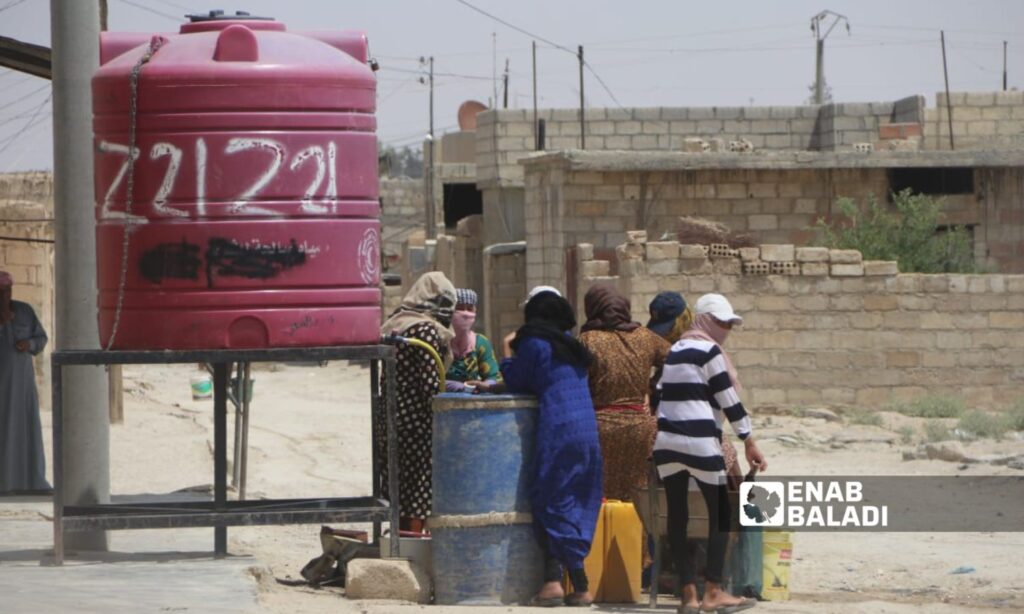In the past week, the city of al-Hasakah in northeastern Syria has seen a significant increase in cases of food and digestive poisoning, especially among children.
Enab Baladi‘s correspondent in the area observed a large number of families bringing their children to hospitals.
These cases are accompanied by symptoms of fever, vomiting, and nausea.
These cases are attributed to contaminated water from tanks, which has led to widespread poisoning and digestive disorders among children.
A nurse at the National Hospital (People’s Hospital) told Enab Baladi that the hospital receives more than 70 poisoning cases daily, most of them children, including those under the age of five.
The patients range in age from four to 20 years, and sometimes cases of poisoning appear among the elderly, but the vast majority of patients are children.
Pediatrician Jassim Jassim in al-Hasakah city said he receives many cases of children suffering from general weakness and high temperatures, in addition to nausea.
Some children also suffer from severe diarrhea, which may lead to dehydration and the need for hospital admission and treatment, according to Jassim.
He added that under normal circumstances, children might experience similar symptoms with rising temperatures, but this year the number of cases has doubled.
The main cause of the poisoning cases is the contaminated water used amid the high temperatures.
The local Hawar news agency, which is close to the Autonomous Administration controlling the area, cited a medical source inside the People’s Hospital as reporting 1,200 cases presenting the same symptoms.
Al-Hasakah suffers from water shortages after damage to the electricity stations that supply the Alouk station at the main water pump, which led residents to buy water from tanks.
The Alouk station supplies the city of al-Hasakah and its countryside with water and is considered the main water source for about 460,000 people in al-Hasakah city, Tal Tamr, and the camps of al-Hol and al-Arisha.
According to Enab Baladi‘s correspondent in al-Hasakah, the price of a water tank has reached 75,000 Syrian pounds.
Previously, the al-Hasakah Water Directorate announced that the governorate, Tal Tamr, their villages, and the camps of Washokani and Ras al-Ain are “disaster-stricken” areas where life is almost nonexistent due to the water crisis.
The Directorate attributed the reason to the cutoff of drinking water from the Alouk station located in the city of Ras al-Ain, which is under the control of factions of the Syrian National Army, accusing both Russia, the Syrian regime, and Turkey of being behind it.
Meanwhile, Ankara accuses the Syrian Democratic Forces (SDF) of cutting off the power supply to the station, which has stopped the water pumping.

